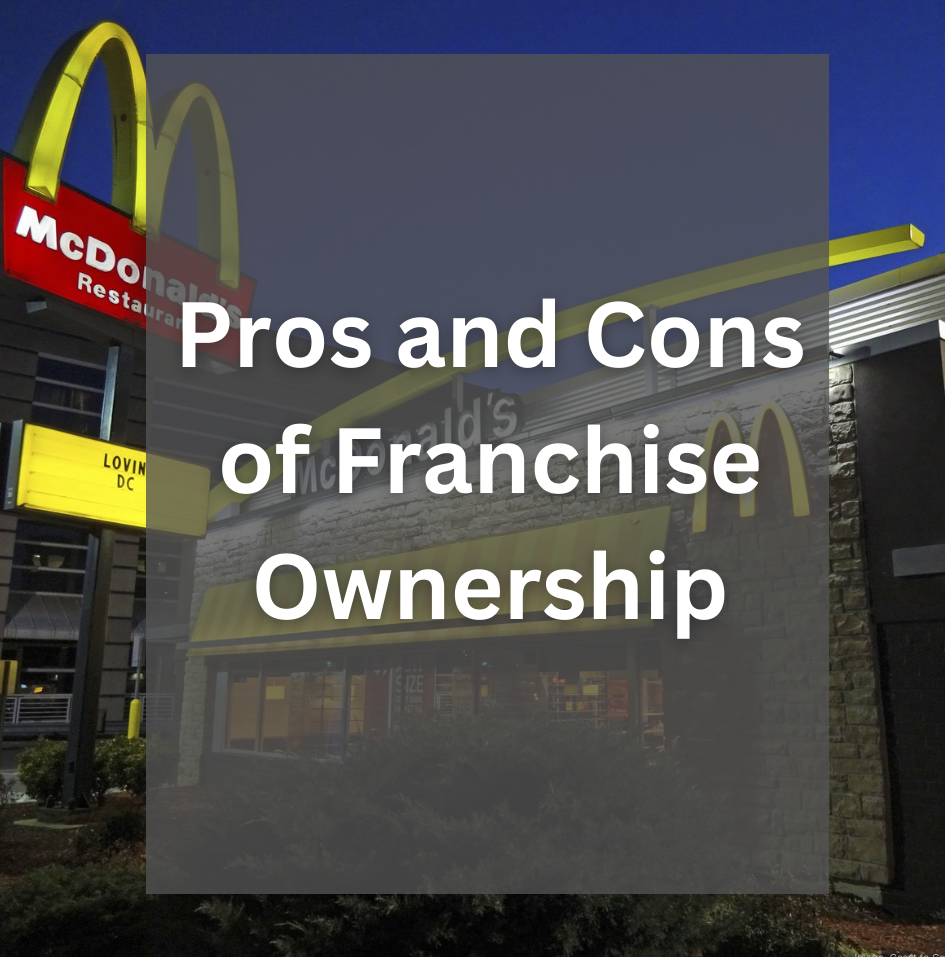**Disclosure:** We believe in honesty and transparency to the fullest extent. Some of the links on this blog are affiliate links, meaning, at no additional cost to you, we will earn a commission if you click through and make a purchase. This is one of the simplest ways you can support us.
The allure of opening a franchise resonates with many budding entrepreneurs. The idea of launching a business with a recognized brand name, established operations, and a supportive network is compelling. However, as with any venture, franchising presents its set of advantages and challenges. From McDonald’s To Chic-Fila To Tropical Smoothie Cafe there is a franchise in every category you can think of. Let’s delve into the pros and cons of franchise ownership to help you make an informed decision.
Franchise ownership is ideally suited for individuals seeking a structured approach to business operations, offering a comprehensive framework that outlines every step toward success. However, for those who pride themselves on being innovators or find adherence to predefined guidelines restrictive, franchising might not be the most suitable path. Entrepreneurs who thrive on creativity and autonomy may find the constraints of franchise agreements limiting, potentially stifling their entrepreneurial spirit.
Pros of Opening a Franchise

1. Established Brand Recognition:
– Operating under a renowned brand means instant recognition and trust from customers. This can translate to faster profitability compared to building a brand from scratch.
2. Proven Business Model:
– Franchises offer a blueprint for success. You’re adopting a business model with proven operational processes, reducing the risks associated with trial and error.
3. Training and Support:
– Many franchisors provide comprehensive training for franchisees, ensuring that you’re well-equipped to run the business. Continued support, be it in marketing, operational challenges, or technology, can be invaluable.

4. Easier Access to Financing:
– Financial institutions often view franchised businesses as lower-risk, making it easier for franchisees to secure loans.
5. Group Purchasing Power:
– Franchises often benefit from bulk purchasing deals negotiated by the franchisor, leading to reduced costs for inventory and supplies.
Cons of Opening a Franchise:
1. Initial and Ongoing Fees:
– Franchising comes with a price. There’s usually a significant initial franchise fee, followed by ongoing royalties and advertising fees. These costs can impact your bottom line.
2. Lack of Autonomy:
– As a franchisee, you’re required to follow the franchisor’s rules and guidelines, which can limit your creativity and ability to adapt to local needs.
Looking for more information on buying and managing a franchise? Click Here!
3. Reputation is Shared:
– While a positive reputation of the brand can benefit you, any negative press or missteps by other franchisees can inadvertently impact your business.
4. Contractual Commitment:
– Franchise agreements often bind you for several years. Exiting these contracts can be complex and expensive.
5. Potential for Conflicts:
– Disagreements can arise between franchisors and franchisees regarding business decisions, territorial rights, or changes in ongoing fees.
Conclusion
Franchising can be a lucrative path for many entrepreneurs, offering a quicker route to profitability with reduced operational hurdles. However, the trade-offs, including costs and reduced autonomy, are factors to consider. Before diving in, it’s crucial to thoroughly research the specific franchise, understand all associated costs, and consult with current franchisees to get a clearer picture of the experience. Remember, the success of a franchise, like any business, hinges on due diligence, hard work, and adaptability. Be sure to sign up for our email list as we will be doing deep dives on franchises to consider soon!










